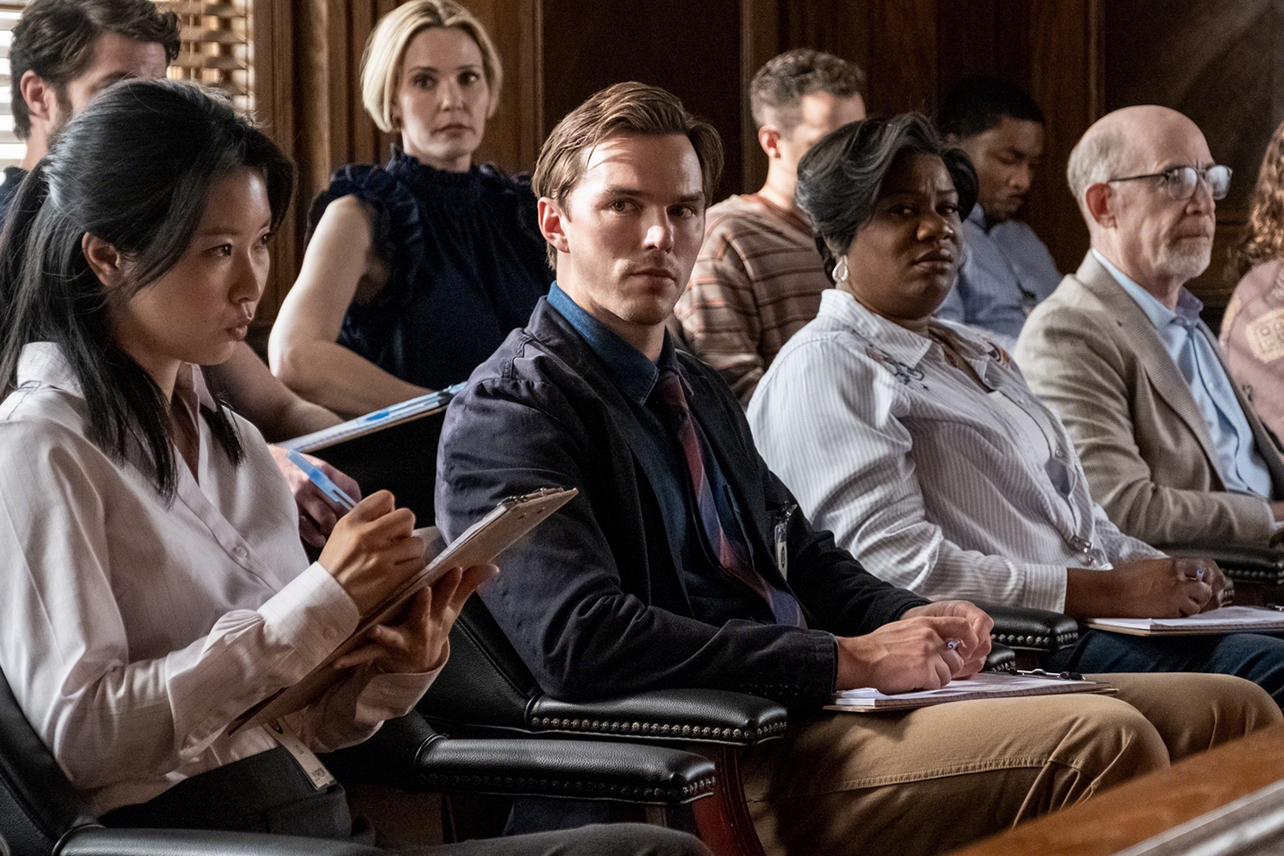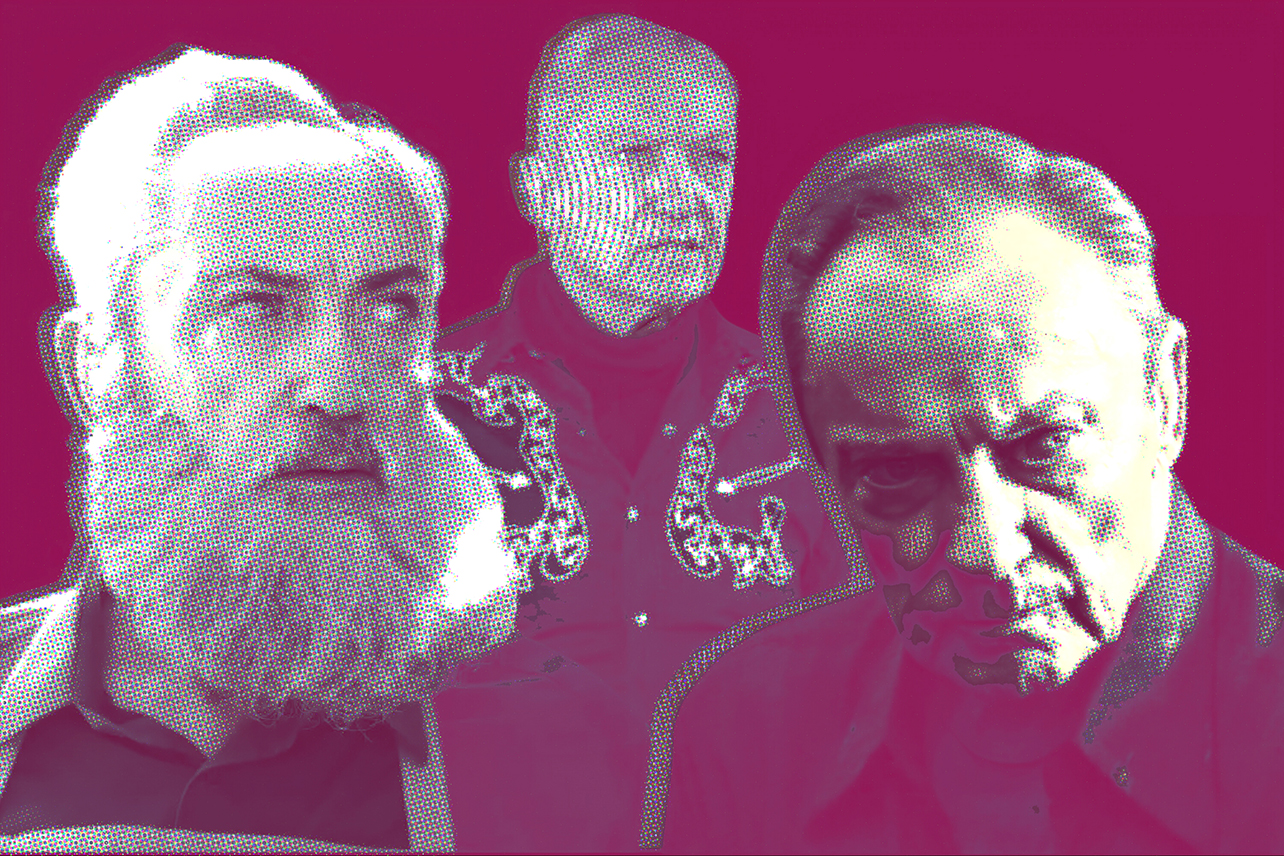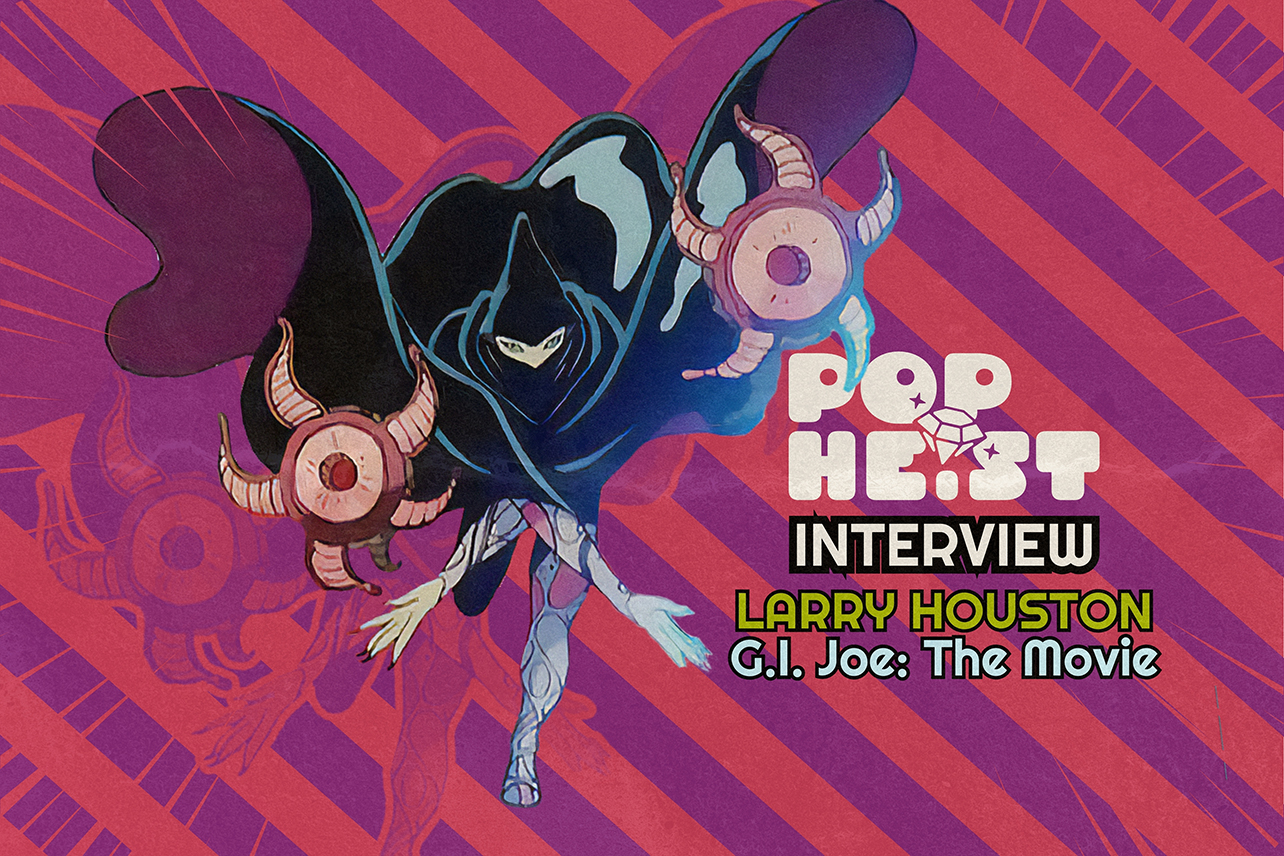Juror #2
Writer: Jonathan A. Abrams
Director: Clint Eastwood
Cast: Nicholas Hoult, Toni Collette, J.K. Simmons, Kiefer Sutherland, Zoey Deutch, Amy Aquino, Gabriel Basso, Francesca Eastwood, Chris Messina, Cedric Yarbrough
The courtroom and the movie screen were made for each other. No matter how fair, precise, and calculated we might like the justice system to be, there's always more than one story at work in the process.
The courtroom is meant to be a place where defendant and plaintiff can be stood up side-by-side, presided over by an impartial judge and a jury open to following cold, hard facts wherever they lead is. In reality, the courtroom is a place where dozens of stories are unfolding at once. Everyone has an agenda no matter how simple, and the scales can tip with the weight of a single misplaced word.
But it's not just that the rigid structure of the courtroom, juxtaposed with the distinctly un-rigid foibles of human nature, makes for great drama. It's that courtroom stories, aside from having ready-made stages on which said drama can play out, are all about storytellers. Prosecutors and defense attorneys, judges and jurors, journalists and spectators are all not just framing narratives, but shaping them. They're creating an inherent and delicious tension between their various versions of reality.
It's no wonder, then, that everyone from Sidney Lumet to Aaron Sorkin to, now, Clint Eastwood has wanted to play in that space.
Eastwood's courtroom drama, Juror #2, is yet another story in the genre about how narratives are shaped, shifted, and warped during what's meant to be a black-and-white story of right and wrong. Like so many films of its kind, there's an element of the morality play embedded at the core of its premise. There's a "What Would You Do?" hook that recalls classics like 12 Angry Men.
But just as he did with the revisionist Westerns that so defined the first decades of his directorial career, Eastwood uses that hook to dig into something deeper. He doesn't always reach what he's after, but when Eastwood and his tremendous ensemble cast are rooting around in the shadows between clear rights and wrongs, this film absolutely shines. Juror #2 is one of the year's most confidently made adult dramas.
The juror of the title is Justin (Nicholas Hoult), a soon-to-be new dad who, like so many of us, would really rather not have to serve on a jury. He'd rather be home with his pregnant wife (Zoey Deutch), getting ready for the new baby. The judge in the case (Amy Aquino) assures Justin that he'll be fine. He's selected for what turns out to be a murder trial. Prosecutor Faith Killibrew (Toni Collette) argues that the defendant, James Michael Sythe (Gabriel Basso), murdered his girlfriend (played by Eastwood's daughter Francesca) one rainy night after the couple stormed out of a rural bar, and pushed her body into a creek bed. Defender Eric Resnick (Chris Messina) argues that no direct evidence connects Sythe to the murder. He puts forward that his client simply went home after arguing with his girlfriend.
The hook? Justin realizes as he hears the case that he was at the same bar that night, fighting off an alcoholic relapse. And that was also the same night that he hit something with his SUV while driving in the rain, something he never saw, something that might have been a deer or might have been a woman who was knocked into the dark creek bed by the impact.
"What if the real killer didn't know he was the real killer until he entered the courtroom as a juror?" is a great elevator pitch, and Eastwood wastes little time getting right to the meat of Jonathan Abrams' (in his screenwriting debut) premise. We set up Justin's beautiful, promising life as a husband and soon-to-be father, we get him in the courtroom door, and then we spring the trap and things are off and running. A veteran director and an energetic script do wonders for this kind of story, and Hoult's steady presence means that we're immediately invested.
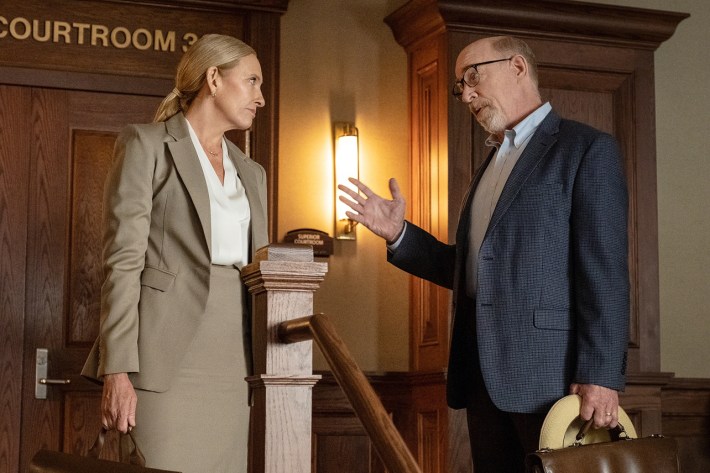
The primary narrative thrust of Juror #2 then becomes the internal wrestling match in Justin's own soul, as he tries to steer the verdict in a certain direction while a retired detective (J.K. Simmons) and a stubborn youth advocate (Cedric Yarbrough), who are also serving on the jury, have ideas of their own. Will Justin fess up to what he might have done? Will he get Sythe acquitted so he can at least feel like he didn't ruin two lives? Will he sacrifice another man's life in service to his own?
The film is at its best when it's simply playing as a character piece, allowing Hoult's expressive, bright eyes and trembling jaw to tell the story. There's an inarguable power in the way he plays Justin, a talent for shifting rapidly between hot and cold that keeps us in the center of his emotional journey. When Abrams' script is keeping tight focus on that, it's unbeatable for sheer dramatic force.
Things get richer, and darker, when the script adds Justin's status as a recovering alcoholic to the mix, not just because it gives the character another sympathetic feature, but because it adds to the shadowy nature of the film's moral journey. As a recovering alcoholic myself, I can tell you that one of the hardest parts of the process is not only acknowledging mistakes, but acknowledging that you are not in control of how the world will perceive those mistakes, or how systems of power will hand down consequences.
Justin, for obvious reasons, is having trouble with this part. Watching Hoult dance between raindrops as he tries to preserve the things he holds dear is genuinely thrilling, a real-time experience of seeing a man trying to hold his soul together.
But even with Hoult's towering work in mind, Juror #2 is also a great ensemble movie. You couldn't ask for a better pair to carry courtroom deliberations than Collette and Messina, who are clearly having a ball dueling with each other, and the jury room is full of powerhouses from the expected (Simmons, still a heavyweight) to the perhaps unexpected (Yarbrough brings so much drama to this party).
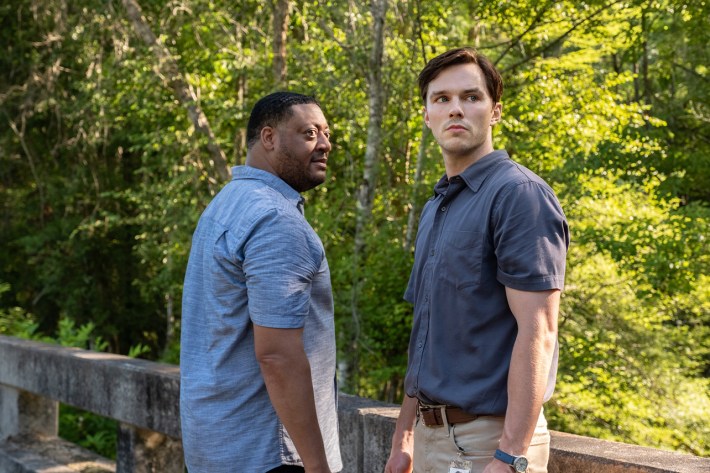
Abrams' script and Eastwood's veteran instincts for pacing are both smart enough to pepper the film with the inner lives of these people. We're given a prosecutor who's facing a tough election, an old gumshoe who thinks he's found seams in the case, jurors who just want to get the damn thing over with, and more. It all adds to the sense that there are deep, compelling shadows between the light and dark in this film, which helps to build tension in Justin's story.
After all, if everyone else has their own reasons and their own sins, so can you.
Where the film falters, and it occasionally does, is in sometimes conflating moral ambiguity and plain-old indecisiveness. Eastwood's camera, presided over by frequent collaborator Yves Belanger, is usually assured, composed, and elegantly maneuvered, but I also got the sense that the lens was chasing red herrings a bit too often.
For example, at one point a major character drops their phone on the ground. The camera pushes in on it, and another character picks it up and hands it back to them. For a moment, this phone seems like it's going to be a vital piece of the puzzle, and then it just ... isn't. It's a close-up without a clear purpose beyond the very briefest character crossing. Moments like these don't add much and they throw this lean film off balance.
Then there's Abrams' script, which insists we keep going back to the scene of the crime again and again — not in service of adding more clues, but just ... to remind us, I guess? At one point late in the film, everything plays over yet again and there's a sense that new information might be coming — and then nothing. It's meant to keep us guessing, to keep our eyes peeled for new layers, but in the end it feels like extraneous tissue that could have been trimmed off to keep the film barreling forward.
These lapses in focus aside, though, Juror #2 is a triumph for Eastwood who, at age 94, proves he can still make movies better than directors half his age or a third his age. There's a moment late in the film when he pushes in on Hoult in the middle of a key emotional moment, and the light hits his lead actor's eyes just right, proving that Clint's instincts are still there, his passion for raw human drama still intact.
If you've loved the decades of Eastwood stories about human frailty in the face of the behemoth we call "justice," you will love this film too. Even if you don't care who made it and you're just looking for a mature, thoughtful drama with a hell of a cast, Juror #2 will deliver.
Juror #2 is now streaming on Max.
